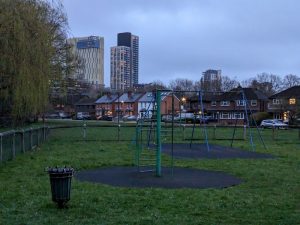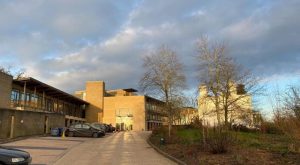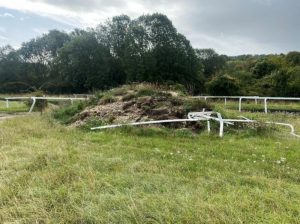Spelthorne Borough Council has been warned it must sell off its commercial property empire fast or risk losing tens of millions of pounds and plunging even deeper into financial crisis. The financially-stricken authority agreed on November 17 to overhaul the way it repays its £1.1bn debt, adopt a new debt-repayment policy ordered by government commissioners, and start a rapid sell-off of its investment portfolio.
If the council delivers the plan on time, it could strengthen its budget by around £37m over the next decade, thanks largely to a £361m discount for repaying long-term Public Works Loan Board debt early. But the window to the cash in is narrow. Council officers say that slipping just six months behind schedule would slash the benefit to £12m, and a 25 per cent drop in sales prices could wipe out around 60 per cent of expected gains. The message from senior officials was blunt: delays are dangerous.
The warning triggered fierce rows in the chamber. Conservative councillors argued members still lacked key information and should not be rushed into decisions with such huge consequences. Cllr Margaret Attewell said the analysis so far was “all interpretation and it is not right”, calling for more advice before committing to the strategy.
But others insisted hesitation would be reckless. Cllr Howard Williams said rejecting the new repayment policy would be “the most irresponsible thing this council could do”, warning that commissioners could seize control and force a fire sale if Spelthorne failed to act.
Tory members remained unconvinced. “I don’t see how Spelthorne residents are going to be the winner in this,” said Cllr Sinead Mooney. “Why rush this through now?” Cllr Karen Howkins added that councillors had once believed their previous investment decisions were sound and could not be certain history wouldn’t repeat itself.
Behind the political clash lies a collapsing property empire. The council bought £1.077bn of commercial buildings over several years; they’re now valued at just £552m. Selling them is essential to meet government demands, but the council must still prove it is getting “best value” for every disposal.
The financial strain will be felt quickly. The amount Spelthorne must set aside for debt repayments, its Minimum Revenue Provision, will jump to £59m next year before slowly dropping to £9m over the next decade.
With stakes this high, the council plans to hire external property specialists to handle valuations, marketing and negotiations, admitting its in-house team is far too small to manage such a vast sale programme.
What this all means for residents is still unclear, but councillors warned cuts and higher council tax are almost inevitable. “We’ve looked purely at the financial side,” said Cllr Paul Woodward. “We have no idea what impact on our residents this is going to be.”
Image: Spelthorne Borough Council offices in Knowle Green, Staines. Credit: Emily Coady-Stemp
Related reports:
Spelthorne Borough Council commissioners
Who will be saddled with Spelthorne’s and Woking’s £3 billion debts?











